




 For every interview I will be introducing a literary personality discussing his views and insights, as well as upcoming literary events around the world.
For every interview I will be introducing a literary personality discussing his views and insights, as well as upcoming literary events around the world.Today’s interview is with Anthony Flacco who won the True Crime category of the National Best Books 2009 Awards for his book, The Road Out Of Hell which is a real life events during 1928 in Los Angeles. "The Road Out Of Hell" is the untold story behind the movie Changeling.
Changeling was released in theatres in October 2008 starring Oscar and Golden Globe winner, Angelina Jolie and Oscar nominee and Emmy award winning actor, John Malkovich.
The film was directed by Academy award winning director, producer, Clint Eastwood.
Changeling, a dramatic recreation of the sex-driven child-murder spree in the late 1920s is told in a breathless you-are-there style that depends almost exclusively on dramatically recreated scenes.
The Road Out of Hell is not technically a thriller but has written an astonishing, spell-binding and mesmerizing book. It’s an incredibly historical non-fiction crime drama that demonstrates a mentally deranged human being.
The hero a 13-year-old Sanford Clark, delivered in 1926 by his deranged mother into the hands of his homicidally sadistic uncle, Gordon Stewart Northcott, a pedophile and a murderer. For two years, Sanford struggles to survive the beatings, the abuse and the assaults on himself, to survive the same on other children, only they are murdered.
Mr.Flacco has published six books, among them are: A Checklist For Murderer, Tiny Dancer, The Last Nightingale, The Hidden Man, Published Your Non-Fiction Book and The Road Out Of Hell. The Hidden Man and The Last Nightingale are two of his historical novels dealing with the California during the early 1900’s.
E.I. Would you share some early insight into who you were as a teenager? What were you like? Please tell us more about Anthony Flacco -- the man behind the award-winning International bestselling nonfiction author?
A.F. Oh, man, E.I.—my teenage years? You’re going straight for the kneecaps right out of the box? All right, I’ll play, but you’ve tipped your hand—I’m going to have to keep a sharp eye on you…
In my teen years I was an amorphous mass of bewildered confusion, unfocused anger, and a fissile weapon of horniness packaged into a lanky class clown whom I would not wish upon any of my teaching friends today. Back then, the correct term for a child like myself with Attention Deficit Hyperactivity Disorder was “what an asshole.” I cringe to remember that time and have no excuse for it, other than to add that I grew beyond that place as fast as I could. My awareness of my limitations has always sharpened my hunger to learn.
E.I. What is it about the art form of writing that enchants you the most?
A.F. It’s as close as I will ever get to living the life of an alchemist, working in an arcane laboratory turning base metals into valuable things, employing secret methods of my own device while supervised by nothing more intrusive than the usual inner demons.
E.I. How do you imagine the audience as you are writing nonfiction? Do you have sheets of newsprint covering story boards all over your walls?
A.F. In today’s literary marketplace, issues of a book’s target audience are worked out at the publishing house before the contract is signed. Beyond that, I don’t find any value in visualizing the audience while I am trying to work, thank you, since my internal editor is given to savage fits of dissatisfaction and frequently chases me through sleep.
Speaking of sleep, I eagerly anticipate a reality show featuring a writer who writes for a viewing audience in front of his/her web cam. Insomniacs delight: real-time webcasting, fascinating as a bridge cam, only not as useful.
Considering today’s media world, I trot this out as an idea for a new reality show—miserable, tick-infested, flea-bitten idea that it is—and parade it before you to ask: can an idea as repellent as this one not happen? I say buy the all the stock that you can get in that sorry excuse for a television broadcast while the price is still low.
As for your question about story boards, I am very visual and love to cover every flat surface with relevant material. But I do find that the specific look of the working environment changes for every book. The amount and the kind of visual material is very much affected by the imagery of the story, its setting, time period, general climate, and its general social condition. The sound quality of my working environment is the most important thing to me. We all know what happens when you try to actually find some quiet time, but I need it to do my best work, and live where I do for the peace and quiet of it. I have lived and worked in the metropolitan areas of Los Angeles, Chicago, and New York City for most of my life, and I used to fight for a quiet corner and a few moments of silence. My sense-memory of that is one of literally drowning from the lack of silence.
E.I. What was your biggest challenge in writing “The Road Out of Hell”? How many years of research did you do, and how did you decide what level of details your reader will accept? Did you work them out in advance, or did they evolve as you wrote the story? How did you overcome these challenges?
A.F. All of those questions lead to one answer—I accepted from the very beginning that Sanford Clark’s story was a personal holocaust for one isolated boy, and that it was no different than the personal experience of the Nazi Holocaust in terms of its horror for the individual victim. Therefore, I knew that I had to write this story exactly as I would handle any story of the Nazi death camps, meaning that it is paramount to express the individual experience of confusion, terror, pain, uncertainty, desperation, and one’s frantic struggle to figure out how to mollify the captor in order to slow down the torment inflicted. I am convinced that you would fail to write anything truthful about such a phenomenon unless this deep level of honesty is employed. These are burdens upon the writer that go far beyond questions of accuracy. Journalism is the wrong tool for the job. It can’t tell the story unless it morphs into a narrative that employs a far deeper subjective experience, emotional turmoil, and a generally threatening level of writing. This is definitely not some memoir of an unhappy childhood and resulting addiction issues—such struggles fail to rise to a journey of recovery from sustained captivity under the evil of human nature at its very worst.
E.I. How much of Sanford Clark’s life is planned out in your head in spite of the great darkness of the story? How do you know where you will go next?
A.F. Since Sanford Clark’s life was over before I began my research, the facts of it directed the overall story arc. There wasn’t any planning needed at first beyond learning everything I could about him from multiple sources, in addition to the personal information that I got from his son, Jerry.
E.I. If you were asked to read a page from “The Road Out of Hell” is there one that you would personally select to share with your fans?
A.F. I like to start at the top of Chapter One and read through Sanford’s unwilling departure from home and continue well into the road trip, until right about the time that young Sanford finally realizes that there is something very wrong with Uncle Stewart.
I invite all of your readers to listen to my audio reading of Chapter One on my website, www.AnthonyFlacco.com Just click on the book cover shot of “The Road out Of Hell.”
E.I. The media had once said that if “The Road Out of Hell” had come out in 1966, it might have been the most controversial book in America. That’s because in 1966 was the year Truman Capote’s In Cold Blood came out. What can you say about that?
A.F. I think it’s probably a good idea to stay away from such observations, other than to say that I am always grateful for enthusiastic readers.
E.I. What do you find to be the hardest part of writing “The Road Out of Hell? How do you weave so much suspense and elements of information into your stories and yet you keep them so fast-paced?
A.F. I focused this story on the internal life of the boy Sanford Clark, tying each moment of the story to his personal experience of the event. Readers will note sometimes his reactions are visible to other characters who can see and react, but most often his reactions are things he keeps invisible, for his own safety. In that sense, he could be sitting alone in a chair in an empty room, but the description of his experience of that moment could be filled with stress and a chaos of tumbling emotions. This is because his condition is one of being continually presented with more than he can handle and of being violently overwhelmed by it all. He sometimes experiences the flow of time as “flying by,” even nothing is happening. The reader’s sense of speed comes from that. If they are engaged by the story as I would hope them to be, it will often feel as if it is moving fast only because it felt fast to him at the time it happened. This imparts the feel of motion without the need for chase scenes and gun battles.
E.I. Mr. Flacco, you are well known in the writing community as the International bestselling nonfiction author who won the True Crime category of the National Best Books 2009 Awards for your book “The Road Out Of Hell.” Do you ever feel pressure or insecure, or are you able to separate all that from your own creative process?
A.F. I believe you are referring to sort of doubt demon that causes a major chunk of writer’s block. The old 2:00 a.m. of the soul. I can tell you that in my experience, the most effective way to deal with the million subtle doubts that can ride in on neurosis, is to perform the healing with an axe. Ignore the countless complex knots and cut through entire bundles of strands with simple and uncomplicated will power. I found a Nike ad in a magazine that was so good I cut it out and framed it, and it now sits on my desk directly in my line of sight. It is a plain sheet of white paper with three handwritten lines, using three different types of handwriting, and the simple message is: “Just do it. Just do it. Just do it.” More often than not, the thing to do is shut up and write. Fix it later if you need to. Re-writing, if the Old Testament is to be believed, is of Divine origin; consider the Flood.
E.I. What would you tell those authors considering applying to an M.F.A. program? In your opinion how important is it for a writer to have a writing degree?
A.F. If you have a passion to write and to approach writing as close to the state of the art as possible, then you have simply got to get yourself into a situation conducive to that process. This means that you must be where your commitment to writing is understood and supported. You must be where there are positive examples to learn from and to inspire your planned growth. You need to have access to constructive feedback from other writers who share a level of dedication similar to yours.
So if an M.F.A. program is something that will provide those things to you, then chase it like a dog goes after a car’s rear tire. Get into that program. But the thing is, it has to be a situation that causes you to get the writing done. Avoid literary theory like a major carcinogen. It is little more than art appreciation via autopsy. You need to produce a regular stream of pages that are either competitive on their own or which serve the purpose of raising your skill level toward better writing in the future.
The degree itself is of little value unless you plan to teach at the high school or college level, in which case an MFA may serve you well if you have attended a reputable graduate program. But whether in the academic environment or the literary marketplace, the beautiful tyranny of the writing life is that the work is either done or it is not done. Everyone has reasons not to write and nobody has the time. The writers are the ones who find time anyway. The simplicity of that is as bracing as Witch Hazel on a fresh cut. So please go for a degree if—but only if—the process of qualifying for that degree helps you to actually get your writing done.
E.I. Mr. Flacco, Thank you for contributing to my blog. It has been a pleasure for me to get to know your work a little better. Would you like to end your interview with a writing tip or advice for young aspiring writers?
A.F. FELLOW WRITERS – Consider how many of today’s historical writings were done by people who had no idea their work would survive them. That said, how can you know that your writing won’t someday be among theirs? The world needs to hear from you whether it knows it or not. Write it down! Write it down! Write it down!
Mr. Anthony Flacco's photo by Goan Vindaloo
To find out more about Anthony Flacco, please visit his WEBSITE
To purchase his books please visit AMAZON and Barnes & Noble Books

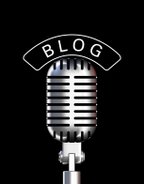





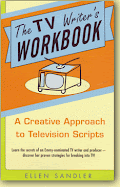



.png)




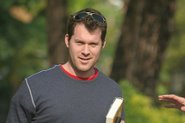


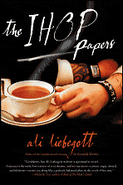

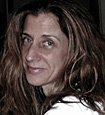
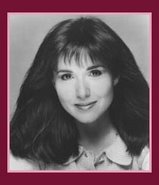






No comments:
Post a Comment